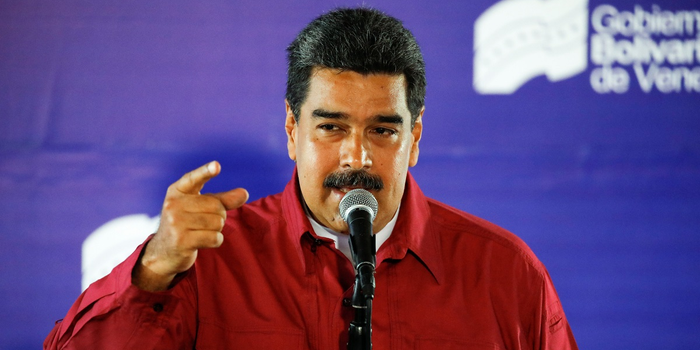
The relationship between the US and Venezuela has long been complicated, starting from the assumption of power of Chavez, up until now. Since 2019, this relationship has further worsened as a consequence of Maduro refusing to cede power and the US not recognizing him as legitimate president of Venezuela. Since then, US policy has mainly been based on supporting the opposition and sanctioning Maduro’s regime. Now, this relationship may be evolving with the easing of some of the sanctions by the US.
While many different US sanctions on Venezuela have been put in place since over a decade ago, it was the Trump administration that expanded those as a pressure strategy against the Venezuelan President Nicolás Maduro. These sanctions roughly consist of the freezing of Venezuelan foreign assets, banning oil from the country and bans on trade with the state energy company and aimed at pressuring Maduro to assure government change. However, as his mandate has been strengthened, Venezuela has also turned towards Russia, China and Iran. This could weaken Western leverage in the country, and therefore, many believe that the US might now be changing their strategy and opting for a “softer” stance in the matter.
Another aspect that has influenced the US government’s stance is the energy crisis caused by Russia’s invasion of Ukraine. One of the main consequences of this was the fact that Chevron, the US energy giant, was given green light last year to expand operations in the country and so were other European oil companies. What is more, the US gave a license for the development of a major gas field in Venezuela to Trinidad and Tobago. In addition to this, the UN has been granted the ability to oversee the use of US-frozen Venezuelan assets and funds to pay for humanitarian relief in the country. All of these aspects clearly point to a shift in the way western powers are dealing with Venezuela. Additionally, with the end of the Trump administration and the transition towards the Biden Administration, the existing infrastructure that was used to give considerable attention to Venezuela is now gone, which means that the attention paid to Venezuela by the US government may be decreasing. One should still bear in mind that many argue that this could have happened due to the collapse of democratic opposition in Venezuela, which means that the US supporting the opposition in the country will not bring any change.
The possible lifting of sanctions would, nevertheless, depend on Maduro’s regime and their willingness to cooperate with the US government. The aim of the US’ strategy (as well as the EU) is to ensure that democratic processes are protected in Venezuela, mainly in relation to achieving fair and free elections next year. However, the prosecution of the opposition and banning of opposition candidates such as María Corina Machado are clear signs that Maduro’s regime is not willing to give in in this aspect and that democratic elections are far from being a reality in the country.
Despite the growing importance of energy security as a consequence of the war in Ukraine, experts argue that the lifting of sanctions could improve US energy security but still would not offer a significant boost of oil production over the short- or mid-term. Moreover, considering the fact that this is dependent upon Maduro’s cooperation (which many argue is unlikely to happen) and that the Venezuelan government seems to be aligned with Iran, China and Russia, one could argue that this might not be the most effective approach to achieve the goal of free and fair presidential elections in Venezuela in 2024. Yet, the easing of sanctions could be beneficial for Venezuela since it could help boost its economy and it is worth noting that Maduro’s allies are not able or not willing to help his regime, especially in the economic aspect.
While past and present relationship between the US and Venezuela and the little effect of US-led sanctions and policies on Maduro’s regime, some argue that there still could be a way forward. Since the easing of sanctions could be beneficial for the country’s economy, this could be used as leverage to promote some small changes to the government and democratic processes, rather than aiming at dismantling the regime. Some argue that Maduro’s regime is even stronger than it used to be, which means that it is even less likely that his administration will loosen its grip on power over the country. However, concessions to allow rebuilding of capacity in civil society organizations or loosening a certain degree of control to allow for broader representation without really threatening the regime could mean crucial future and bigger steps towards democracy in Venezuela. In short, one could argue that the US and other Western powers should approach this situation as a process rather than a change that will happen through sticks and carrots in a short period of time.
REFERENCE LIST
Abrams, E. (2023, 10 July). U.S. policy toward Venezuela takes a body blow. Council on Foreign Relations. https://www.cfr.org/blog/us-policy-toward-venezuela-takes-body-blow
Butler, E. (2023, 19 September). US-Venezuela relations at a tipping point: Investors bet on possible sanctions relief. euronews. https://www.euronews.com/2023/09/19/us-venezuela-relations-at-a-tipping-point-investors-bet-on-possible-sanctions-relief
Garver, R. (2022, 20 December). Changes in US-Venezuela relationship could augur more engagement. VOA. https://www.voanews.com/a/changes-in-us-venezuela-relationship-could-augur-more-engagement/6883711.html
By The European Institute for International Law and International Relations.















